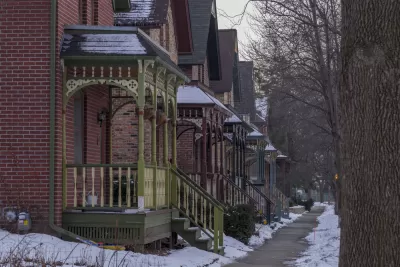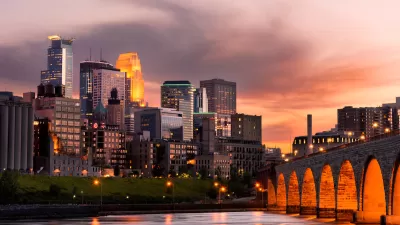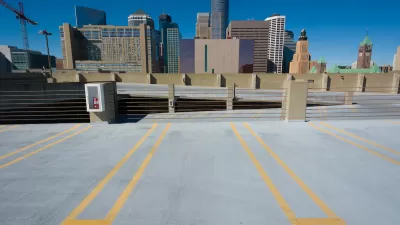The Federal Reserve Bank of Minneapolis has noticed an alarming spike in investor-owned homes in Minneapolis since the Great Recession.

The Federal Reserve Bank of Minneapolis has started monitoring a disturbing trend, writes Joy Wiltermuth: "an explosion of investor-owned homes" in high-poverty neighborhoods. According to a Minneapolis Fed report, the rate of investor-owned homes rose sharply after the Great Recession, with a growing number of 'very large' investors—those who own 50 or more properties—snapping up foreclosed homes. The trend accelerated during the COVID-19 pandemic as some homeowners were forced to sell or fell into foreclosure.
"One concern is that deep-pocketed investors 'make it harder for families, particularly lower-income households who are more likely to be people of color, to compete in the home-buying process,' according to the report." In Northeast Minneapolis, where the poverty rate is 41.7 percent, investors own close to a third of residential properties. The report also cites concerns that increased ownership by absentee investors who provide little maintenance will lead to the deterioration of housing stock and poor conditions for tenants.

Planetizen Federal Action Tracker
A weekly monitor of how Trump’s orders and actions are impacting planners and planning in America.

Restaurant Patios Were a Pandemic Win — Why Were They so Hard to Keep?
Social distancing requirements and changes in travel patterns prompted cities to pilot new uses for street and sidewalk space. Then it got complicated.

Map: Where Senate Republicans Want to Sell Your Public Lands
For public land advocates, the Senate Republicans’ proposal to sell millions of acres of public land in the West is “the biggest fight of their careers.”

Maui's Vacation Rental Debate Turns Ugly
Verbal attacks, misinformation campaigns and fistfights plague a high-stakes debate to convert thousands of vacation rentals into long-term housing.

San Francisco Suspends Traffic Calming Amidst Record Deaths
Citing “a challenging fiscal landscape,” the city will cease the program on the heels of 42 traffic deaths, including 24 pedestrians.

California Homeless Arrests, Citations Spike After Ruling
An investigation reveals that anti-homeless actions increased up to 500% after Grants Pass v. Johnson — even in cities claiming no policy change.
Urban Design for Planners 1: Software Tools
This six-course series explores essential urban design concepts using open source software and equips planners with the tools they need to participate fully in the urban design process.
Planning for Universal Design
Learn the tools for implementing Universal Design in planning regulations.
Heyer Gruel & Associates PA
JM Goldson LLC
Custer County Colorado
City of Camden Redevelopment Agency
City of Astoria
Transportation Research & Education Center (TREC) at Portland State University
Camden Redevelopment Agency
City of Claremont
Municipality of Princeton (NJ)





























